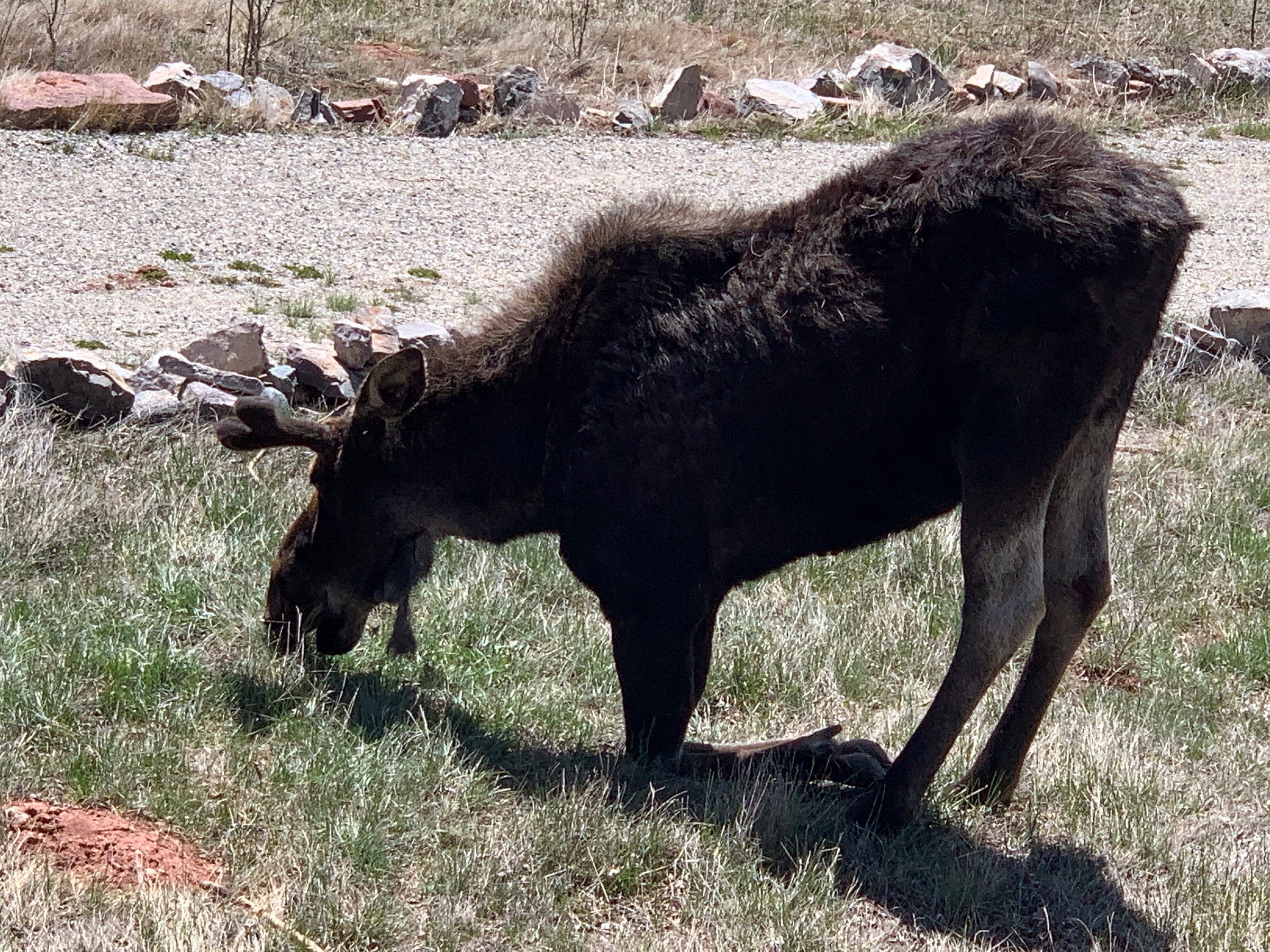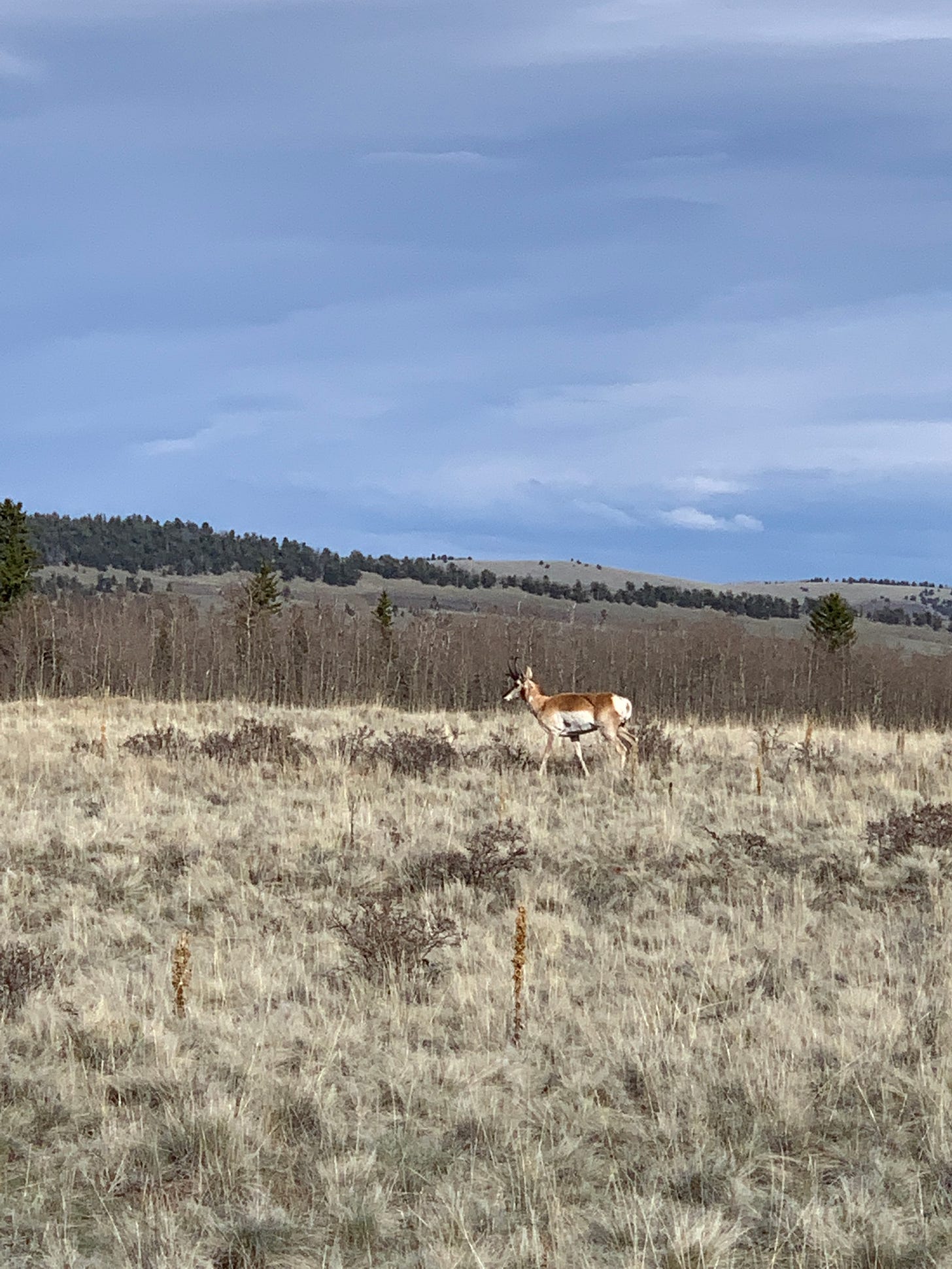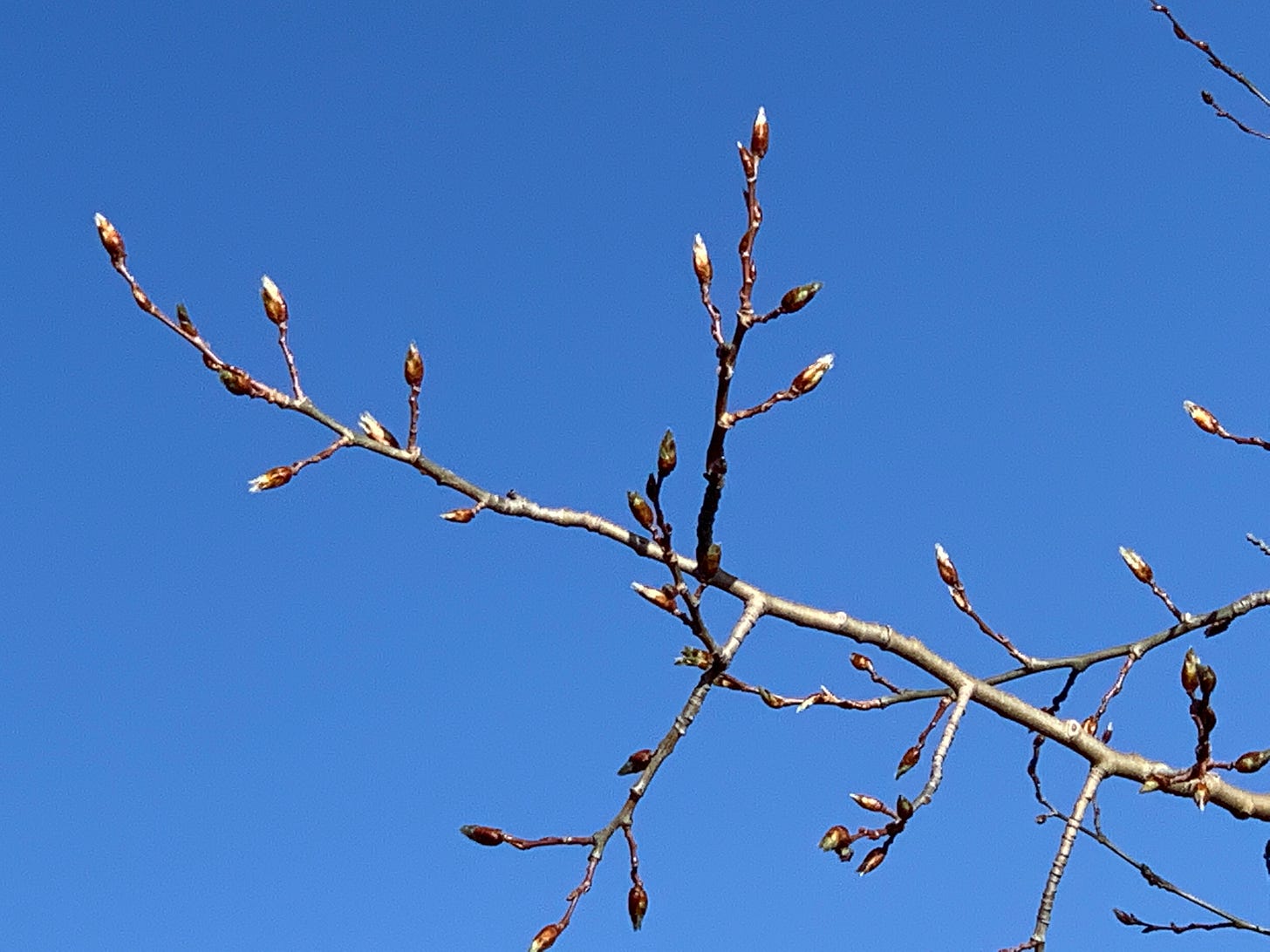
Greetings, Pilgrims, which seems especially appropriate for today’s discussion of secular theology.
Intermittent Signal comes out, you know, intermittently. Usually that’s about every three weeks, but occasionally signals emit more rapidly. Like today. And more frequent publication is supposedly better for building engagement, anyway. Because you, gentle reader, do not have enough stuff to read.
Today, Harvard, via its Interim President Alan Garber and Interim Provost John Manning, issued a statement on “Institutional Voice,” immediately transmitted to the Harvard “Community.” From the transmittal:
“In particular, the report concludes that “[t]he university and its leaders should not . . . issue official statements about public matters that do not directly affect the university’s core function” as an academic institution. It reasons that when the University “speaks officially on matters outside its institutional area of expertise,” such statements risk compromising the “integrity and credibility” of our academic mission and may undermine open inquiry and academic freedom by making “it more difficult for some members of the community to express their views when they differ from the university’s official position.”
You may read the transmittal, with supporting documentation, at Harvard Institutional Voice Working Group.
Why is this significant, you ask, apart from the nation’s perhaps unhealthy fascination with the place? Maybe Harvard’s statement is a bellwether, maybe not, but it seems worth considering.
As you may recall, Harvard has an Interim President due to the defenestration of Claudine Gay, after her disastrous testimony to Congress, occasioned by demonstrations following the October 7th Hamas massacre and the Israeli response. The President before Gay was Lawrence Bacow. In 2020, Bacow wrote a rather impassioned letter to the Harvard community about the state of the nation called “What I Believe.” Back then, in my Medium days, I wrote an essay about Bacow’s letter, “The Church of Harvard.” The essay, with links to Bacow’s statement is below, with one minor edit. (In light of reader comments and Jonathan Edwards, I rewrote a sentence to replace “Pilgrims” with “Quakers.”)
The Church of Harvard
A Reading of President Bacow’s “What I Believe”
On Saturday, May 30, 2020, Harvard University’s Office of the President sent “What I Believe,” a letter from President Lawrence Bacow to “Members of the Harvard Community.” The letter is clear enough yet very puzzling, subtly brilliant, and subcutaneously moving. This essay attempts to read “What I Believe” carefully.
Bacow begins by writing that the last months have been disorienting for “all of us.” Community is affirmed in the opening sentence. He then recounts dramatic recent troubles: the COVID-19 pandemic; the killing of George Floyd by police, and the ensuing violence in the latest chapter of this nation’s never-ending racial troubles; the broader sense of divisions throughout our society; and the poverty of our leadership.
All true and well written, but why is Bacow writing at all? Why does a pandemic, racial injustice, social acrimony, and terrible rule require a statement from the President of Harvard? The University is far from perfect, but Harvard and President Bacow himself seem to have acquitted themselves well in these difficult times. Harvard really is not the story here. Should the leaders of every important institution write to bemoan our shared troubles, and inescapably assert their own moral stature? The Quakers who founded a colony southwards of Massachusetts might have counseled a more modest silence.
And why is he writing me? Bacow’s letter, of course, is not personal. We do not know one another. He writes from the Office of the President of a great institution, whence it is difficult, often impossible, to write very personally. Hundreds of thousands, perhaps millions, of people received the same email. The letter is even copyrighted. Nonetheless, the text is written as a letter, in the first and second person, and sent to people, rather than written in the third person and published.
To address our troubles, Bacow turns to the past, the nation’s and his own. In 1968, when Bacow was in high school, Martin Luther King and Robert Kennedy were killed. Then as now the nation was bitterly divided over racial and other issues. “At the time, hope was in short supply. It seemed difficult to imagine how we would move forward, but we did.”
The notion that we, collectively as a nation, somehow move forward in time is familiar – the stuff of editorials and graduation speeches, not to mention the sense of our politics as an experiment – yet deeply mysterious. Americans have traditionally seen themselves this way, however, so the pressing question is how to find our way “forward.” The future is a task, rather than something that will arrive in the sweet bye-and-bye, whether we are here to enjoy it, or not.
In confronting this task, Bacow tells us, he returns “again and again” to what he believes. Belief, here, combines tradition and conviction, the wisdom of the past and the will of the present. The strength of an individual’s, or a nation’s belief, in both of these aspects, makes it possible to move forward.
“I believe,” he writes, “in the goodness of the people of this country – and in their resilience.”
“I believe that all of us . . . want a better life for our children.”
“I believe that America should be a beacon of light to the rest of the world.”

And so forth. The list is very familiar, deeply American, and beautifully structured. We move from human good to futurity to the notion that this nation is more than a place but is also an idea, a symbol, a “beacon of light.” The idea that immigrants, with their hopes and their work, have made us much of who we are; the American Dream; the Constitution with its separation of powers, its guarantees of a free press and an independent judiciary and the equal protection of the laws, regardless of race; the obligation to shelter the vulnerable, seek the truth, struggle to articulate and understand . . . the list is fairly long, and Bacow’s readers may be presumed to know it pretty well already. I believe such things, too, whatever more might be said, in other settings. These are our myths, constitutive and often Constitutional. But if we know such things already, then why does Bacow recount?
“I believe,” in Latin credo, from which we get “creed,” as in Nicene Creed, the most widely accepted statement of core Christian doctrines. Like Bacow’s letter, the Nicene Creed begins each statement of faith with “I believe” (in some churches, “we believe”). If each of us believes the same thing, we form a community of believers, a congregation. By writing as President, Bacow implicitly asserts that the “Harvard Community” is more than just a brand or an administrative formule de politesse. At the close of the letter, we members of the Community are of course called upon to reflect on our beliefs, ponder in our hearts, as it were, but little variance is expected. Bacow’s biographical and historical reference points are Detroit and the US in 1968, but his rhetorical reference is to the 4th century in what is now Turkey.
Creeds are issued in times of basic disagreement, when things “need to be said” to clarify the official position and, in doing so, to solidify the community of believers. In the 4th century, as today, there were sharp divisions over transcendent matters, over the way we perceive ourselves in the great scheme of things. Then it was the Arian heresy, which denied or at least downplayed the triune nature of God. Rereading Bacow’s list, one is struck with how ordinary, ubiquitous, his beliefs are in the United States, or were until called into question recently. Does it really need to be said that “I believe that no person is above the law regardless of the office they hold or the uniform they wear”? Well, yes, it does need to be said, especially now, in the age of Trump.
If Bacow’s letter delineates the contours of an American political religion, then Trump is a heretic. The US President has violated, attacked, even disavowed, what we – in the United States and at Harvard (the two are imbricated, and seem almost synonymous for Bacow) – have long and publicly believed if not always achieved. Although he is not named, each statement of shared belief in Bacow’s letter implicitly criticizes Trump. In divisive times, Harvard, older than the United States itself, has clarified the orthodoxy.
Bacow closes his letter in traditional fashion, with a call to action and a reference to Luke: “from those to whom much is given, much is expected.” Indeed. At least vote.
So much more could be said: about the ideas of University, Church and State, and how they have instantiated themselves in this country and elsewhere; about the so-called sacred and secular in contemporary culture; about the consciousness and conduct of elites trained at Harvard and other places; about the political efficacy of Bacow’s letter; the fear that it is too late; and so forth. On this outing, however, I will subside with an observation and a recommendation. Although it ends with Luke, as a whole “What I Believe” strongly recalls Paul’s efforts to establish the Church and strengthen the faith, even in the face of adversity, trouble, and the danger of despair. Paul worked by writing letters, making connections, and keeping the faith, as should we. This republic is far from over.
* * *
If nothing else, rereading this piece four years on reminds me of just how crazed 2020 was, how crazed I felt, at any rate. So, today, I am not sure what Harvard’s recantation means, or will come to mean. The United States does go through periodic “Awakenings,” moments of religious fervor. We remain a nation of pilgrims in all sorts of deep ways, expressed in sundry ways, at home and abroad. Like many others, I have understood recent years largely in those terms, as the “Great Awokening,” an effort to sacralize the contemporary. At some level, I sympathize, though I was sorry to see the witches go. At any rate, such moments tend to “burn out,” leaving some things changed, and maybe that is what we are seeing now.
But maybe not. Maybe this is too parochial a view, too focused on U.S. history. The wars in the Middle East and Eastern Europe continue. Key elections loom here in the US and in many other countries. Discontents run deep.
As it happens, I am writing a strange book that treats some of these themes, and what it all means for the university and social thought more generally. Indeed, I stopped working on Quixote’s Dinner Party for a few hours to get this Signal out. Watch this space.
As always, please engage. Send to your friends or enemies, hell, strangers, hit like, comment, etc.
And safe travels.
— David A. Westbrook






David- Thanks for sharing this. It's been a while since I review the topic of post-collegiate community. Your writing is a great reminder of the importance of thoughtfulness. Hope you're well this week. Cheers, -Thalia
I like the moose, and the photography, generally speaking.
I say this in regard to just about anyone:
I think there are a LOT of things we see online or on TV, even, (heh) that are obviously videos. And I think it's quite likely that a fair percentage of those videos are manufactured to APPEAR to be giving us some sort of "truth" about something, because after all, it's "proof."
I trust nothing anymore. Anything is possible, and I've watched as things that seemed "truthy" enough turned out to be FAKED. We are in a time of very serious and copious fuckery, if you don't mind the term, and for this reason, my old standard is still in play: QUESTION EVERYTHING.
I say this in regard to Donald Trump and Joe Biden being candidates-- I remember seeing a video of how it's possible now to create "masks" of various people that look so real, it's virtually (virtually!) impossible to see it online and be able to tell if it's the real deal or not... And that's BEFORE we even get to the idea of "voting."
Now apply this and all the rest of the shenanigans that happen with cameras and editing and all that, and think about "elections."
Okay, bye, and I liked your post very much, thanks!